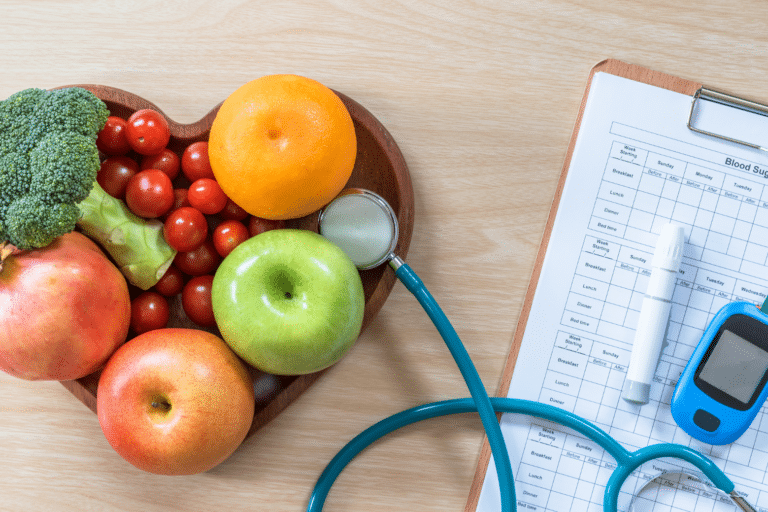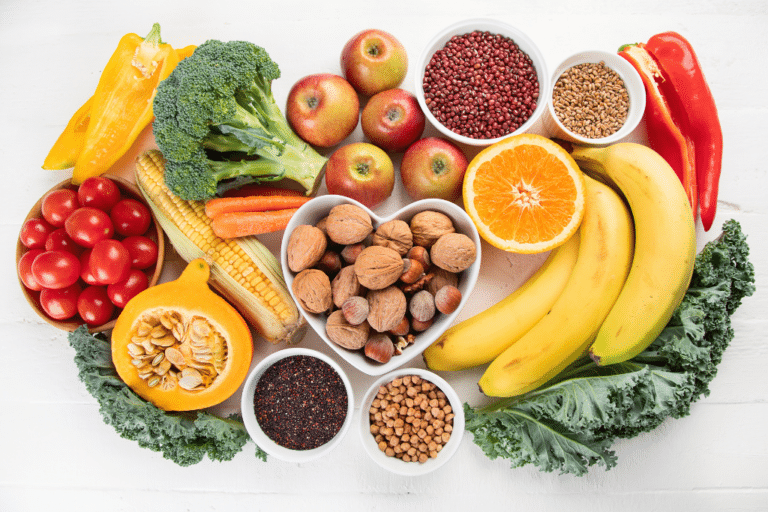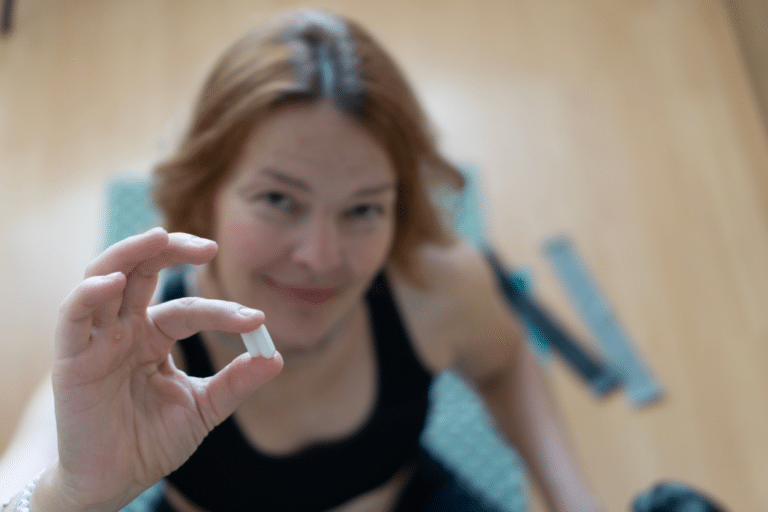In last week’s tip, I covered the importance of managing cortisol when it comes to weight loss in (peri)menopause.
This week, we’ll take a look at another hormone that’s also a major player when it comes to menopausal weight gain.
Insulin.
Biochem 101
Insulin is a hormone that’s produced by your pancreas when you eat. It helps break down carbohydrates into glucose. Glucose is used by your cells for energy. When all is going well, your body produces an amount of insulin that matches the amount of glucose present in your body…the more glucose…the more insulin. This keeps your blood sugar in the sweet spot…not too high and not too low.
When you eat a large amount of carbohydrates, the body has to release lots of insulin to make sure your blood sugar doesn’t get out of control. Eventually, the receptors in your cells become less sensitive to having insulin around and they stop responding. That’s called insulin resistance.
Here’s how this process contributes to weight gain. When your cells can’t absorb all the glucose, your liver converts it to fat. All those extra fat cells crank out estrogen. Weight gain contributes to the estrogen dominance that causes so many of the symptoms of perimenopause. In addition, fluctuations in adrenal and thyroid hormones contribute to insulin resistance.
How do I know if I’m insulin resistant?
You are at the highest risk for developing insulin resistance if you have a family history of Type 2 diabetes or if you’ve had gestational diabetes, high blood pressure or are overweight.
Apple-shaped women who carry their fat round their middle of their bodies are more prone to insulin resistance as are women with abnormal cholesterol. And they’re at higher risk of heart disease, which is the number one killer of menopausal women.
If you believe you are at risk, talk with your health care provider. Your blood sugar and insulin levels can be tested to give you more info.
[bctt tweet=”Eating habits consist of not only what you eat but how and when you eat. #weightgain #weightloss #type2diabetes #bloodsugar #perimenopause #menopause #hormones #insulinresistance #DrAnnaGarrett #AnnaGarrettAsheville” username=”DrAnnaGarrett”]
How to Control Blood Sugar Swings
Eating and exercise habits play a major role in preventing insulin resistance (or improving it if you’ve got it). Eating habits consist of not only what you eat, but how you eat and when you eat. These practices can help keep blood sugar on an even keel:
- Eat every 2-3 hours. Have breakfast, lunch and supper meals. Focus your food choices on low glycemic index foods (veggies, healthy fats, protein). Eat healthy snacks (including fat, protein and fiber) in between each meal. This approach keeps blood sugar stable throughout the day.
- Avoid large quantities of food at mealtimes. When you eat too much at one sitting, your blood sugar level elevates, as does your body’s blood insulin level. Learn to pay attention to your body’s signals and put your fork down when you’re 80% full.
- Avoid “white” foods like bread, sugar and pasta. Processed foods have less nutritional value and are more likely to create blood sugar swings. In addition, highly processed foods can contribute to more hot flashes! Who needs that???
- Make lean meats, veggies and high-fiber grains the mainstay of your diet. If you’re already insulin resistant, eat no more than 15 grams of carbohydrates (from veggies and fruit) per meal. My personal bias is toward a Paleo approach to eating although this may not be right for everyone.
- Do at least 30 minutes of aerobic exercise or aerobic physical activity every day. Include weight training twice a week to build muscle mass and maintain bone health. Muscle tissue burns more calories, so the more you have, the more fat gets burned to support the energy needs of those muscles!
- Increase the general level of physical activity in your life. No explanation needed here…move.
The Bottom Line
Insulin doesn’t get as much attention as the other hormones in menopause, but it’s key to maintaining metabolism. If your metabolism goes off the rails, everything else goes with it. The good news is that with careful attention to lifestyle, insulin resistance can be reversed…allowing all of your hormones to do their jobs so you can maintain a healthy weight and decrease your risk of chronic diseases.
—
Dr. Anna Garrett is a menopause expert and Doctor of Pharmacy. She helps women who are struggling with symptoms of perimenopause and menopause find natural hormone balancing solutions so they can rock their mojo through midlife and beyond. Dr. Anna is the author of Perimenopause: The Savvy Sister’s Guide to Hormone Harmony. Order your copy at www.perimenopausebook.com.
Dr. Anna is available for 1-1 consultations. Find out more at www.drannagarrett.com/lets-




